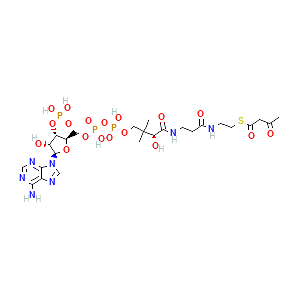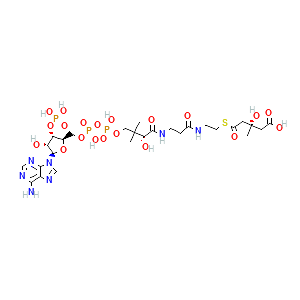| References |
| 1 |
U. S. FDA Label -Acetyl-CoA
|
| 2 |
Activation of G protein-coupled receptors by ketone bodies: Clinical implication of the ketogenic diet in metabolic disorders. Front Endocrinol (Lausanne). 2022 Oct 20;13:972890. doi: 10.3389/fendo.2022.972890.
|
| 3 |
The human gastric pathogen Helicobacter pylori has a potential acetone carboxylase that enhances its ability to colonize mice. BMC Microbiol. 2008 Jan 23;8:14.
|
| 4 |
Compartmentalised acyl-CoA metabolism and roles in chromatin regulation Mol Metab. 2020 Aug;38:100941. doi: 10.1016/j.molmet.2020.01.005.
|
| 5 |
High throughput (13)C-metabolic flux analysis of 3-hydroxypropionic acid producing Pichia pastoris reveals limited availability of acetyl-CoA and ATP due to tight control of the glycolytic flux. Microb Cell Fact. 2023 Jun 29;22(1):117. doi: 10.1186/s12934-023-02123-0.
|
| 6 |
Acetyl-CoA carboxylase 1 is a suppressor of the adipocyte thermogenic program. Cell Rep. 2023 May 30;42(5):112488. doi: 10.1016/j.celrep.2023.112488.
|
| 7 |
In Vivo Estimation of Ketogenesis Using Metabolic Flux Analysis-Technical Aspects and Model Interpretation. Metabolites. 2021 Apr 28;11(5):279. doi: 10.3390/metabo11050279.
|
| 8 |
Early hyperlipidemia triggers metabolomic reprogramming with increased SAH, increased acetyl-CoA-cholesterol synthesis, and decreased glycolysis. Redox Biol. 2023 Jun 16;64:102771. doi: 10.1016/j.redox.2023.102771.
|



